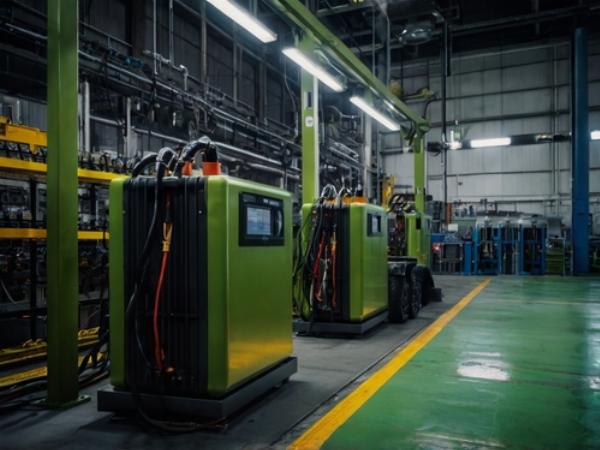Key Trends Shaping the United States Electric Vehicle Battery Market by 2031

Introduction
The United States Electric Vehicle Battery Market is undergoing a transformative period, with expectations of substantial growth by 2031. As the nation pushes towards reducing carbon emissions and fostering renewable energy, the electric vehicle (EV) sector is at the forefront of this change. Central to the success of EVs is the development of advanced battery technologies, which are critical for enhancing vehicle performance, driving range, and overall consumer satisfaction.
The Role of Infrastructure Development
The expansion of EV infrastructure is a critical factor influencing the United States Electric Vehicle Battery Market. The federal government's commitment to building a nationwide network of EV charging stations is a major step forward. This infrastructure development is crucial for alleviating "range anxiety," a common concern among potential EV buyers. As more charging stations become available, the demand for powerful, fast-charging batteries is expected to rise, pushing the market towards innovative solutions.
Investment in Battery Manufacturing
Investment in battery manufacturing is another trend shaping the United States Electric Vehicle Battery Market. Companies are increasingly establishing battery production facilities domestically to ensure a steady supply and reduce dependency on foreign imports. For example, Tesla's Gigafactory in Nevada and General Motors' Ultium Cells plants are set to boost domestic battery production significantly. These investments are expected to drive down battery costs over time, making EVs more affordable for the average consumer.
Innovation in Battery Chemistry
Battery chemistry is a critical area of focus for the United States Electric Vehicle Battery Market. The industry is exploring alternatives to traditional lithium-ion batteries, which, while effective, have limitations such as fire risk and degradation over time. Solid-state batteries, which replace the liquid electrolyte with a solid material, offer a promising alternative with higher energy density and improved safety. Other innovations include the use of silicon anodes and cobalt-free batteries, which could reduce costs and improve sustainability.
Environmental and Ethical Considerations
The environmental impact of battery production is an increasingly important consideration for the United States Electric Vehicle Battery Market. The extraction of raw materials such as lithium, cobalt, and nickel can have significant environmental consequences, including habitat destruction and water pollution. Additionally, there are ethical concerns regarding labor practices in mining operations, particularly in developing countries. As a result, there is growing interest in developing more sustainable battery technologies and sourcing materials more responsibly.
Consumer Preferences and Market Demand
Consumer preferences are evolving rapidly, with a growing number of Americans showing interest in electric vehicles. Factors such as lower operating costs, government incentives, and environmental awareness are driving this shift. As a result, the demand for advanced batteries that can offer longer driving ranges, faster charging times, and greater durability is on the rise. This trend is expected to continue as more consumers make the switch to electric vehicles, further boosting the United States Electric Vehicle Battery Market.
The Rise of Recycling and Second-Life Batteries
Battery recycling and the repurposing of used batteries for second-life applications are emerging trends in the United States Electric Vehicle Battery Market. As the number of electric vehicles on the road increases, so does the volume of spent batteries. Recycling these batteries not only helps reduce the environmental impact but also recovers valuable materials that can be used in new battery production. Additionally, used EV batteries are finding new life in energy storage systems, providing a sustainable solution for managing renewable energy resources.
Future Projections
The future of the United States Electric Vehicle Battery Market looks promising, with projections indicating robust growth by 2031. The market is expected to benefit from continued technological advancements, increased investment in domestic production, and supportive government policies. As the industry moves towards next-generation battery technologies, such as solid-state batteries, the potential for even greater market expansion is significant. Additionally, the emphasis on sustainability and ethical sourcing will likely drive innovation in battery materials and manufacturing processes.
Conclusion
In summary, the United States Electric Vehicle Battery Market is on a trajectory of rapid growth and innovation, driven by infrastructure development, investment in domestic production, and evolving consumer preferences. The focus on sustainable and ethical practices, along with advancements in battery technology, will play a crucial role in shaping the future of the market. By 2031, the United States is poised to be a leader in electric vehicle battery production, contributing to the global shift towards a more sustainable and electrified future.
Note: IndiBlogHub features both user-submitted and editorial content. We do not verify third-party contributions. Read our Disclaimer and Privacy Policyfor details.







